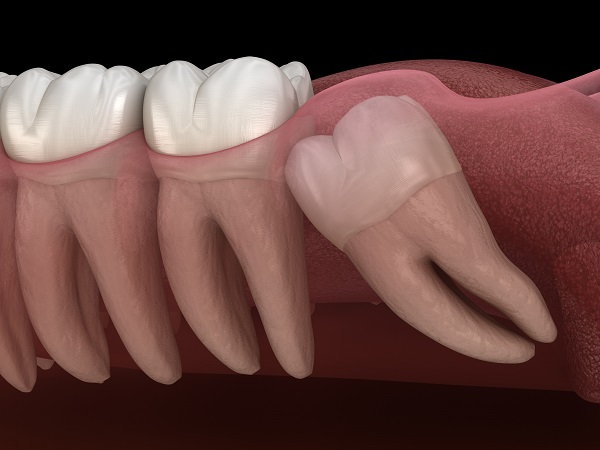Signs to Consider Wisdom Tooth Extractions

A wisdom tooth extraction is often necessary in order to eliminate accompanying symptoms. Many individuals experience the eruption of their wisdom teeth and never notice the signs. However, there are also a lot of cases in which the wisdom teeth present noticeable symptoms that can be used to identify eruption. Teenagers and young adults should be aware of these signs as they may help indicate a need for a wisdom tooth extraction.
Wisdom tooth extraction signs
Outlined below are a few signs that indicate a need to consider wisdom tooth extraction. Keep reading to learn what to keep an eye out for!
Pain or discomfort
The number one sign that indicates a consideration for wisdom tooth extraction is pain or discomfort. When the wisdom teeth erupt, they often cause irritation because they are pushing the already-rooted teeth in different directions. This push can result in pain or discomfort. Pain may be felt in the upper or lower jaw, depending on the location of the eruption. Additionally, the back molars and gums may feel sore.
Swelling or inflammation
Wisdom teeth that erupt can cause swelling and inflammation in the gums, typically in the back of the mouth. It can be difficult to see that far back; however, most individuals can feel around with their finger or tongue to determine if the gums seem puffy or swollen. These symptoms can also lead to an infection in the gums, which makes it necessary to be evaluated for wisdom tooth extraction right away.
Crowding
Another sign that a wisdom tooth extraction is worth considering is if the teeth start crowding. When the wisdom teeth erupt, they can push the other adult teeth into a crowded position. Crowding may not seem detrimental, but it actually is. When the teeth start to crowd, it can result in increased chances of tooth decay and gum disease. Teeth that are not evenly aligned are more difficult to clean as there are harder-to-access areas, thus resulting in a lack of oral hygiene, which can lead to infection development.
Pressure
Oftentimes when the wisdom teeth begin to erupt, they can cause pressure in the oral cavity, typically in the back of the mouth. The upper and lower jaw, as well as back molars, usually experience the most amount of pressure. Pressure can be irritating and may lead to other symptoms, such as discomfort in the jaw. Any feelings of pressure should be taken to a general dentist who may recommend a wisdom tooth extraction.
Find out more about wisdom tooth extraction
There are a lot of signs that indicate a need to consider wisdom tooth extraction, going far and beyond the ones listed above. However, knowing what all of these signs are can be difficult, which is where a general dentist may be needed. A general dentist can perform an evaluation to help individuals determine whether or not wisdom tooth extraction is necessary. Reach out today to learn more or to get started with a consultation.
Request an appointment here: https://joyfuldentalcare.com or call Joyful Dental Care at (773) 736-7767 for an appointment in our Chicago office.
Check out what others are saying about our services on Yelp: Read our Yelp reviews.
Related Posts
Lance is a writer, author, and Healthcare professional with over 20 years in the healthcare industry.Lance A. Slatton is the host of the Award-Winning podcast & YouTube show All Home Care Matters. He is also a senior case manager at Enriched Life Home Care Services in Livonia, MI. Lance was also named a 50 under…
The process of adjusting to new dentures takes several weeks. During this time, you may experience some discomfort and self-consciousness. Both partial and complete dentures take some getting used to. Your dentist gives you instructions for denture adjustment, and if you follow them closely, the process should be simple. However, it does require patience as…
Most first-time denture candidates are nervous about adjusting to new dentures. They usually do not know what to expect, and they may wonder if dentures will feel natural.People get dentures for many reasons, such as broken or missing teeth, excessive tooth decay, gum disease, severe tooth pain or trauma, and painful sensitivity to hot and…
In addition to recognizing the new person in the mirror, adjusting to new dentures requires changing some of a person’s former eating habits. Having a full set of great-looking teeth can give one’s confidence a significant boost, but after spending a considerable amount of time without teeth, it can take a little while to learn…



